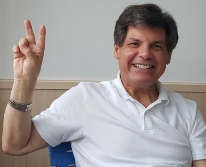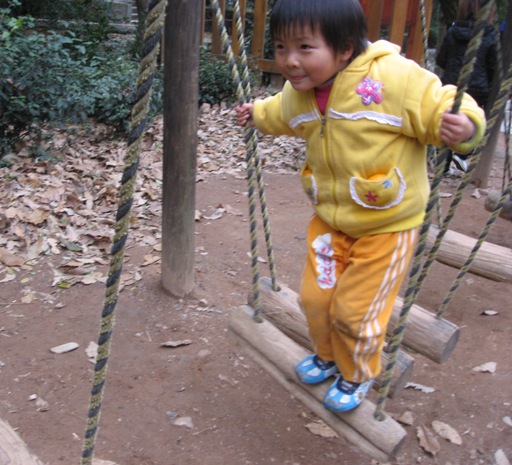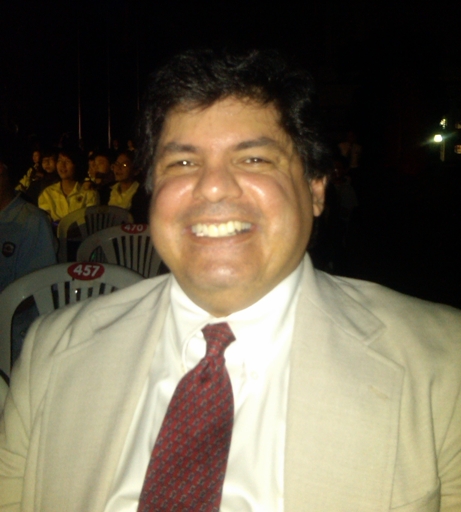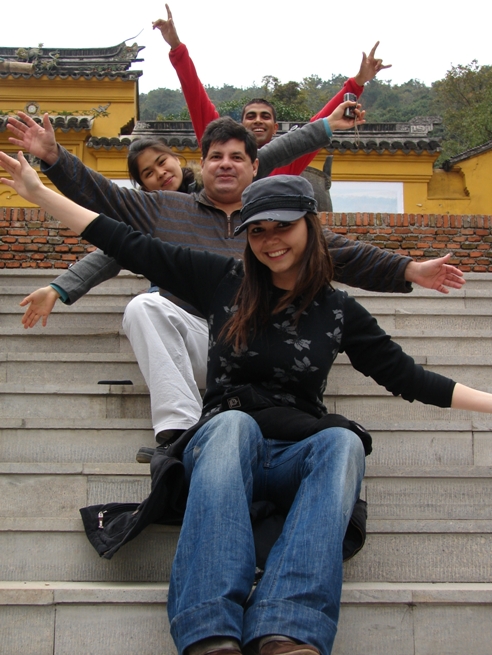|
|
"China's economy is a complete contrast because it's booming," he said. The middle class is spending money, causing the economy to grow exponentially. In America, O'Neill sees the middle class shrinking and said people are afraid to spend money due to high unemployment and the uncertain job market. O'Neill said food in China is very inexpensive, with a large meal at a restaurant costing less than $2. Broadband Internet service, though censored, runs about $100 annually, but "foreigners" like O'Neill are able to bypass the censored version. A Sony Vaio laptop, which typically costs about $2,000 in the United States, was purchased by O'Neill in China for $765. A Chinese SIM calling card allows him to call the United States for about 10 cents per minute, while a U.S. SIM card for the same call would cost about $1.99 a minute, he explained. "Everyone in China has to pay taxes. The government uses some of the taxes to subsidize all the various service providers like cellular companies, Internet providers, satellite companies, railways, gas stations, taxi services, airlines, et cetera. They do this to control the rate of inflation and to keep the price of the services low," he said. O'Neill has met other Americans in China. Some say they moved because of the low cost of living, others say the economy is booming. He's also met retirees from America, and people who have found spouses in the country. O'Neill's residential visa allows him to stay in China for as long as he wants. "I have no plans right now on moving back to the States but at the same time I would never give up my American citizenship. I will always be an American," he said. As for China's view of the United States, O'Neill said the Chinese government is angry because President Barack Obama is threatening the country with trade sanctions. "China is deliberately devaluing its currency by artificially keeping the Yuan below the global currency market," he said. "The low value of the Yuan gives China a trade advantage. They have the ability to export more low-priced goods."
Ettinger has been living in China for about three years. During his first year, he lived in Yantai, in Shandong province. Now he's living in Hong Kong. Like O'Neill, it was a job offer that landed Ettinger in China. Fresh out of college, he began working in the English department at Yantai University. Now he's working as an assistant lecturer in the English department at Hong Kong Shue Yan University. "I did not know a single person," he said of his move to China. "The experience itself was both terrifying and exhilarating. It was like cutting the umbilical cord to a previous life and embarking on something completely strange and foreign. The experience has ended up being the single greatest decision I have made." Ettinger said he knows many folks who believe Hong Kong is a part of Japan. "It was a British colony until 1997. It is now part of the 'One Country, Two Government' policy with China. While the mainland is Communist, Hong Kong is still 'democratic' and enjoys a very high degree of autonomy," he said. That's why, he said, Hong Kong is so different from mainland China. "While in Hong Kong, I feel it is a mixture of many large cities - New York, San Francisco, London and Shanghai - with Hawaii weather. It is extremely safe here. And it is truly one of the most vibrant, entertaining and energetic cities ever," he said. The differences are reflected in the cost of living in Hong Kong, which has its own currency. "Rents are extraordinarily high," and can range anywhere from $1,000 a month for a studio apartment to $5,000 a month for a two-bedroom apartment, he said. "Apartments are selling for millions of dollars." A pair of pants might range from $20 to $150, while a Burger King value meal costs around $6, Ettinger said. "Most things are comparable to New York City," he said. "The rents and real estate, however, are astronomical. I am very lucky as I live in a $2,000-a-month apartment, paid for by my university." While costs are high, Ettinger said, job opportunities are plentiful. "There are definitely a multitude of jobs available, in many different sectors such as education, financial and business," Ettinger explained. "Mainland China itself is especially popular for Americans who want to start up companies or build factories. More and more foreigners are learning to speak Mandarin so they could come to China and make some money. Unemployment is also low here, especially in Hong Kong where the rate is only 4.7 percent." Ettinger has met Americans who are living in Hong Kong. Many moved for banking jobs or teaching posts. "A lot are here because they too crave adventure and are enticed by Asia. Hong Kong is the financial hub of the East and is a very desirable place to be," he said. Chinese people have differing opinions about the United States, Ettinger has learned. "The majority were anti-Bush and pro-Clinton. They liked the idea of Obama but were not impressed by his visit to the mainland," he said. And, he said, most Chinese people believe the United States is the pre-eminent world power. "They are also fiercely proud of their culture and their rise on the world stage and they don't tolerate other countries meddling in their affairs. To this extent, they are very similar to the United States," he said. While in China, Ettinger met a woman who recently became his wife. "She lives with me in Hong Kong and is a Mandarin teacher and private tutor," he said. "I met her in Yantai, and I loved her from the first moment I met her. We are very happy in our new roles as newlyweds." Ettinger, son of Terry and Roseann Ettinger and a graduate of Hazleton Area High School, (PA), plans on staying in Hong Kong - at least for the time being. "If you live in HK for seven consecutive years, you could become a permanent citizen. It is something which has crossed my mind before but I am too free-spirited to think that far in advance," he said. .jwhalen@standardspeaker.com Click on author's byline for bio and list of other works published by Pencil Stubs Online.Below: Teacher and Students
|






